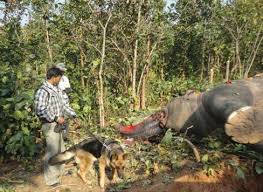WILDLIFE CRIME IN INDIA: A MULTI-FACETED ANALYSIS
Author – Aadithya R Chandran, Student at Indian Institute of Management, Rohtak
Best Citation – Aadithya R Chandran, WILDLIFE CRIME IN INDIA: A MULTI-FACETED ANALYSIS, ILE Monthly Review, 1 (2) of 2023, Pg. 38-45, ISBN – 978-81-961828-8-5
. ABSTRACT
Wildlife crimes are a complex and multifaceted issue in India that calls for a thorough study of its root causes, scope, and effects. This study aims to offer a thorough analysis of the various aspects of wildlife crimes in India, including the types of crimes, the socioeconomic factors that motivate them, the effectiveness of current laws and policies, the function of organized crime syndicates and international networks, the effects on the environment and human health, and the attitudes and perceptions of stakeholders.
This study used a mixed-methods technique to gather data from a variety of sources, including secondary literature and official records. The results showed that poaching, wildlife trafficking, and habitat degradation are India’s most frequent types of wildlife crimes. Poverty, illiteracy, cultural norms, and the demand for animal items in domestic and foreign markets contribute to wildlife crimes.
While India has a solid legal framework for protecting wildlife, the study also found that enforcement is weak and ineffective, with few resources and insufficient training for law enforcement employees. Additionally, transnational networks and organized crime syndicates actively participate in the illegal wildlife trade by taking advantage of corrupt officials and bad governance.
Wildlife crimes have a tremendous negative influence on the environment, biodiversity, and public health, pushing numerous species to the verge of extinction and upsetting ecosystems. The study also showed that different groups of stakeholders have different perspectives on wildlife crimes, ranging from indifference to active involvement.
Based on the findings, this study suggests a multifaceted strategy to combat wildlife crimes in India, including bolstering governance and law enforcement, addressing the underlying causes of poverty and illiteracy, encouraging community-based conservation, and fostering international cooperation.
KEYWORDS : Conservation, Policy, Trafficking, Wildlife trade, Awareness
